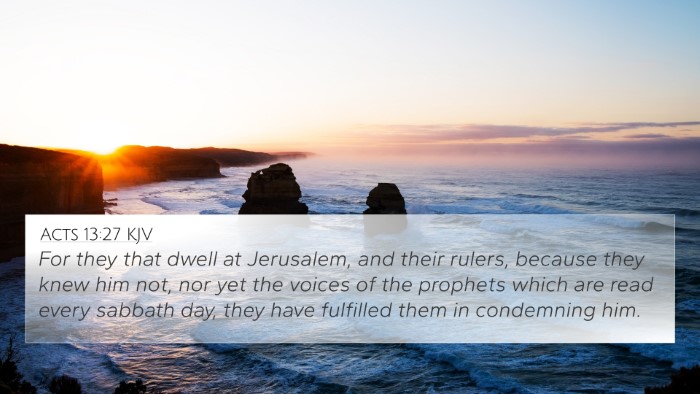Understanding Matthew 12:7
Matthew 12:7 states: "But if you had known what this means, 'I desire mercy and not sacrifice,' you would not have condemned the guiltless." This verse holds profound implications for understanding God's true nature and the spirit of the law compared to mere ritualistic observance.
Commentary Insights
Here, we merge insights from renowned public domain commentaries to elucidate the message of Matthew 12:7.
-
Matthew Henry: He emphasizes that the heart of God seeks mercy and compassion over traditional sacrifices, showcasing God's desire for relational authenticity over ritual compliance. Thus, the Pharisees' rigid interpretations miss the spirit of God's law.
-
Albert Barnes: Barnes highlights the importance of understanding God's requirements, suggesting that true obedience encompasses mercy and compassion. He also infers that the Pharisees misjudged Jesus and His disciples, not recognizing their innocence in their actions.
-
Adam Clarke: Clarke focuses on the quotation from Hosea (Hosea 6:6) that Jesus cites, illustrating that Israel's spiritual leaders had omitted essential virtues of God’s character in their theology. Clarke asserts that a true understanding of God's nature demands a balance of justice and mercy.
Cross-References and Thematic Connections
Matthew 12:7 connects to various other verses across the Bible, highlighting the recurring themes of mercy, sacrifice, and divine understanding.
- Hosea 6:6 - "For I desire mercy, not sacrifice, and acknowledgment of God rather than burnt offerings." This Old Testament verse directly parallels Matthew 12:7, emphasizing God's desire for mercy over ritual.
- Micah 6:8 - "He has shown you, O mortal, what is good. And what does the Lord require of you? To act justly and to love mercy and to walk humbly with your God." This verse aligns well with the message of mercy being superior to sacrifice.
- 1 Samuel 15:22 - "Does the Lord delight in burnt offerings and sacrifices as much as in obeying the Lord? To obey is better than sacrifice." This reinforces the theme that God prioritizes obedience that stems from love rather than mere offerings.
- James 2:13 - "Because judgment without mercy will be shown to anyone who has not been merciful. Mercy triumphs over judgment." This linkage emphasizes that mercy is a divine principle that prevails over strict judgment.
- Matthew 9:13 - "But go and learn what this means: ‘I desire mercy, not sacrifice.’ For I have not come to call the righteous, but sinners." This is another direct quotation from Jesus, reiterating the idea found in Matthew 12:7.
- Isaiah 58:6-7 - "Is not this the kind of fasting I have chosen: to loose the chains of injustice and untie the cords of the yoke...?" This passage also underscores the importance of compassion over ritualistic observance.
- Romans 12:1 - "Therefore, I urge you, brothers and sisters, in view of God’s mercy, to offer your bodies as a living sacrifice, holy and pleasing to God—this is your true and proper worship." This shows the transition from ritualistic sacrifice to a life lived in mercy and service.
Practical Application and Understanding
Matthew 12:7 teaches followers of Christ to prioritize love, compassion, and mercy in their interactions with others. It challenges believers to reflect on their understanding of God’s will, urging them to move beyond mere compliance with the law towards a heart that embodies God’s character.
Conclusion
In summary, Matthew 12:7 provides a powerful reminder of God’s preference for mercy over sacrifice. The commentaries of Henry, Barnes, and Clarke deepen our understanding by connecting this verse to broader biblical themes and highlighting the consequences of neglecting divine compassion in favor of ritualistic practices.
Further Study Resources
For those interested in delving deeper into the connections between Bible verses and enhancing their understanding of biblical themes, consider employing tools for Bible cross-referencing. Resources such as a Bible concordance or a cross-reference Bible study guide can facilitate a more enriched study experience.
Keywords for Further Exploration
Those seeking to explore related topics should consider terms like "How to identify connections between Old and New Testament" or "Comparative study of Pauline epistles". Engaging with these subjects can yield insight on the complexities and interrelations that exist within scripture.













